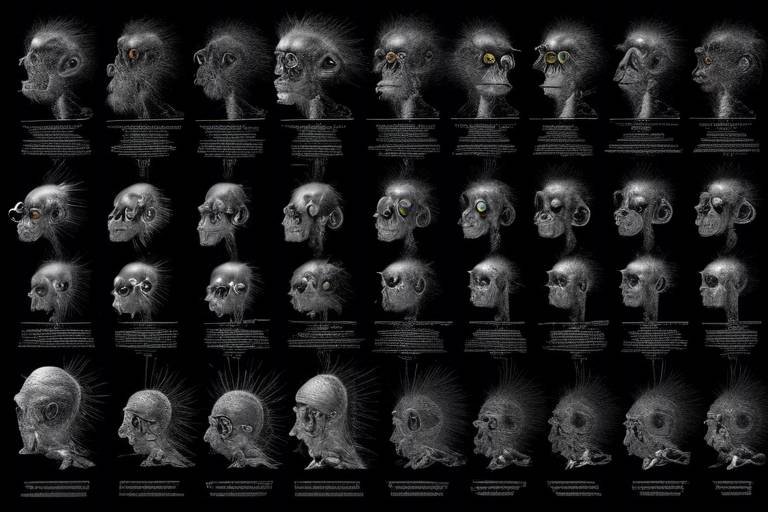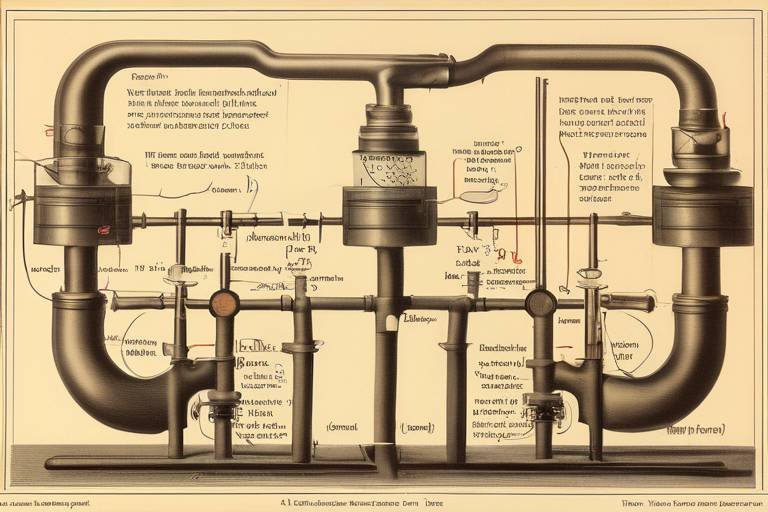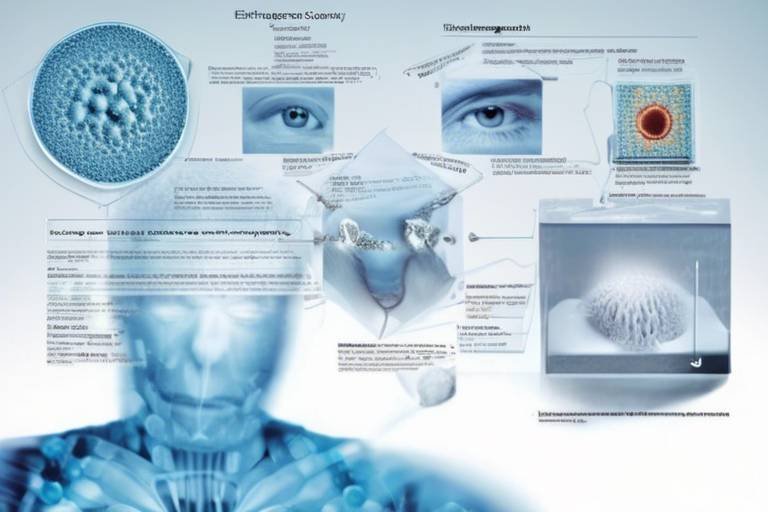The Philosophy of Science in Vet Medicine
The intersection of philosophy and veterinary medicine is a fascinating realm that invites us to ponder not just how we treat animals, but why we treat them the way we do. At its core, veterinary medicine is not merely a scientific discipline; it is deeply interwoven with ethical considerations, societal norms, and philosophical inquiries. The principles of science guide veterinarians in their practices, but the underlying philosophies shape their understanding of animal health and welfare. This article delves into these intricate connections, exploring how scientific principles influence veterinary practices while also examining the ethical implications that arise from these interactions.
In veterinary medicine, the scientific method is the backbone of effective practice. It provides a structured approach to understanding animal health issues, allowing veterinarians to formulate hypotheses, conduct experiments, and draw conclusions based on observable data. This method is not just about treating symptoms; it’s about understanding the underlying causes of health problems in animals. By applying rigorous scientific principles, veterinarians can ensure that their approaches are evidence-based, leading to better outcomes for their patients. But what happens when the science meets the ethical dilemmas of veterinary practice? That’s where philosophy steps in, guiding practitioners through the murky waters of moral responsibility and animal rights.
As we navigate this complex landscape, it’s essential to recognize that the philosophy of science in veterinary medicine is not static. It evolves as we gain new insights into animal behavior, welfare, and the societal impacts of our practices. For instance, the ongoing discussions about animal welfare and rights challenge veterinarians to reconsider their roles and responsibilities. They must grapple with questions like: What does it mean to treat an animal humanely? and How do we balance the needs of animals with those of humans? These inquiries are not just academic; they have real-world implications that affect how veterinarians approach their work.
Moreover, the philosophical underpinnings of regulations and standards in veterinary medicine are crucial for ensuring ethical treatment. Understanding these frameworks helps veterinarians navigate the complex ethical landscape of their profession. It prompts them to reflect on the importance of adhering to established guidelines that prioritize animal welfare and public health. In this context, the role of veterinarians extends beyond mere practitioners; they become advocates for ethical standards that protect both animals and the communities they serve.
As we move forward, it’s vital to recognize that the philosophy of science in veterinary medicine is enriched by interdisciplinary approaches. By integrating insights from biology, ethics, sociology, and even technology, we can develop a more comprehensive understanding of animal health. This holistic perspective not only enhances research but also informs clinical practices, fostering a deeper connection between veterinarians and the animals they care for.
In conclusion, the philosophy of science in veterinary medicine is a dynamic interplay of scientific inquiry and ethical consideration. It challenges us to think critically about our practices and the implications they have for animal welfare. As we continue to explore this fascinating intersection, we must remain committed to advancing both our scientific understanding and our ethical responsibilities, ensuring that the care we provide is both effective and compassionate.
- What is the importance of the scientific method in veterinary medicine?
The scientific method is crucial as it provides a structured approach to diagnosing and treating animal health issues, ensuring that practices are evidence-based.
- How do ethics influence veterinary practices?
Ethics guide veterinarians in making decisions that prioritize animal welfare, balancing the needs of animals with human interests.
- What role does technology play in modern veterinary medicine?
Technology enhances veterinary practices through tools like telemedicine and artificial intelligence, but it also raises philosophical questions about the human-animal bond.

The Role of Scientific Method in Veterinary Medicine
The scientific method is the backbone of veterinary medicine, acting as a compass that guides veterinarians through the often murky waters of animal health. Imagine embarking on a journey without a map; that’s what diagnosing and treating animals would be like without the scientific method. This structured approach ensures that veterinary practices are not just based on anecdotal evidence or tradition but are grounded in empirical research and evidence-based practices. By following this method, veterinarians can systematically observe, hypothesize, experiment, and analyze results, ultimately leading to more accurate diagnoses and effective treatments.
At its core, the scientific method involves several key steps:
- Observation: Noticing symptoms and behaviors in animals that could indicate health issues.
- Questioning: Formulating questions about the observed phenomena, such as "What could be causing this symptom?"
- Hypothesis: Developing a testable hypothesis based on initial observations.
- Experimentation: Conducting experiments or clinical trials to test the hypothesis.
- Analysis: Analyzing the data collected to draw conclusions.
- Conclusion: Determining whether the hypothesis was supported or refuted and making recommendations for treatment.
This method not only enhances the accuracy of veterinary practices but also fosters a culture of continuous learning and adaptation. For instance, when a new disease emerges, veterinarians can quickly mobilize to study its effects, leading to the development of vaccines or treatments that can save countless lives. This process is not just about treating the sick; it’s about understanding the underlying principles that govern animal health, which in turn can inform preventive measures and improve overall animal welfare.
Moreover, the scientific method encourages collaboration among professionals. Veterinarians often work alongside researchers, biologists, and ethicists to ensure a comprehensive approach to animal health. This interdisciplinary teamwork is crucial, especially when addressing complex issues such as zoonotic diseases, which can affect both animals and humans. By sharing knowledge and resources, the veterinary community can tackle these challenges more effectively.
In conclusion, the scientific method is not just a set of steps; it is a philosophy that underpins veterinary medicine. It empowers veterinarians to make informed decisions, enhances the quality of care provided to animals, and ultimately leads to a more profound understanding of the intricate relationships between humans and animals. As we continue to explore the depths of veterinary science, the scientific method will remain a vital tool in our quest for knowledge, ensuring that we can provide the best possible care for our furry companions.
- What is the scientific method? The scientific method is a systematic approach to inquiry that involves observation, questioning, hypothesizing, experimenting, analyzing, and concluding.
- Why is the scientific method important in veterinary medicine? It ensures that veterinary practices are based on evidence and research, leading to more accurate diagnoses and effective treatments.
- How does the scientific method influence veterinary practices? It fosters continuous learning and adaptation, allowing veterinarians to respond quickly to new health challenges and improve animal welfare.
- Can veterinarians work with other professionals? Yes, veterinarians often collaborate with researchers, biologists, and ethicists to address complex health issues.

Ethics in Veterinary Science
The field of veterinary medicine is not just about diagnosing and treating animals; it is also deeply intertwined with ethical considerations that shape the very fabric of its practice. Every day, veterinarians are faced with complex decisions that challenge their moral compass, requiring them to weigh the welfare of their animal patients against the expectations and needs of their human clients. This delicate balance is crucial, as it not only affects the outcomes for animals but also impacts the trust and relationship veterinarians build with pet owners and society at large.
At the heart of veterinary ethics is the principle of animal welfare. This principle obliges veterinarians to prioritize the health and well-being of animals in their care. However, ethical dilemmas often arise when a veterinarian's duty to the animal conflicts with the desires or demands of the owner. For instance, a pet owner may insist on a treatment that the veterinarian believes is not in the best interest of the animal. In such cases, veterinarians must navigate these challenging waters, often relying on their training, experience, and ethical frameworks to guide their decisions.
Moreover, the concept of animal rights has gained significant traction in recent years, prompting a reevaluation of traditional practices in veterinary medicine. The question arises: to what extent should veterinarians advocate for the rights of animals? This philosophical inquiry leads to discussions about humane treatment, the moral obligations of veterinarians, and the implications of animal research. For example, while some argue that animal research is necessary for advancing veterinary medicine and improving animal health, others contend that it raises ethical issues regarding the treatment of sentient beings. These debates are not merely academic; they have real-world implications for veterinary practice, influencing everything from clinical decisions to public policy.
Another layer to the ethical landscape in veterinary science is the challenge of balancing animal and human needs. Veterinarians often find themselves in situations where the best course of action for an animal may not align with the wishes of the pet owner. This creates a moral quandary: should the veterinarian respect the owner's wishes, or should they prioritize the animal's well-being? The answer is rarely straightforward and often requires deep philosophical reflection. In many cases, veterinarians must engage in open and honest communication with pet owners, helping them understand the implications of their choices while advocating for the best possible care for their animals.
Furthermore, the ethics of veterinary medicine are governed by various regulations and standards that aim to ensure humane treatment and animal welfare. Understanding the philosophical underpinnings of these regulations helps clarify their importance. For instance, laws regarding animal cruelty and the ethical treatment of animals in research are designed not only to protect animals but also to uphold the integrity of the veterinary profession. These standards serve as a reminder that veterinarians have a responsibility not just to their patients but also to society, reinforcing the idea that ethical practice is essential for maintaining public trust.
In conclusion, the ethics of veterinary science are complex and multifaceted, requiring practitioners to constantly navigate the intricate interplay between animal welfare, human interests, and societal expectations. As the field continues to evolve, so too will the ethical considerations that shape veterinary practice. Veterinarians must remain vigilant and responsive to these challenges, ensuring that they uphold their commitment to both animal health and ethical integrity.
- What are the main ethical principles in veterinary medicine?
The main ethical principles include animal welfare, animal rights, and the balance between animal and human needs. - How do veterinarians handle ethical dilemmas?
Veterinarians often rely on their training, ethical frameworks, and open communication with pet owners to navigate ethical dilemmas. - Why are regulations important in veterinary ethics?
Regulations help ensure humane treatment of animals and uphold the integrity of the veterinary profession.

Animal Welfare and Rights
When we delve into the realm of , we uncover a rich tapestry of ethical considerations that significantly influence veterinary practices. It's not just about treating an animal's ailments; it's about understanding their intrinsic value and the moral obligations we hold towards them. The conversation around animal rights is evolving, and veterinarians are at the forefront, advocating for humane treatment and compassionate care.
At the core of this discussion is the recognition that animals are sentient beings. They experience pain, joy, and a range of emotions, much like humans do. This understanding compels veterinarians to adopt a more holistic approach to care, considering not only the physical health of the animal but also its emotional and psychological well-being. For instance, when faced with treatment options, veterinarians often weigh the potential benefits against the possible suffering an animal might endure. This ethical dilemma highlights the importance of a balanced perspective in veterinary medicine.
Moreover, the philosophy surrounding animal rights raises critical questions about the use of animals in research and agriculture. Are we justified in using animals for our benefit, or do they possess rights that should protect them from exploitation? These questions are not just theoretical; they have real-world implications. For example, many veterinary schools now emphasize the importance of humane education and the ethical treatment of animals in their curricula, preparing future veterinarians to navigate these complex issues.
In practice, the implications of animal welfare and rights can be seen in various ways:
- Preventative Care: Emphasizing the importance of regular check-ups and vaccinations to prevent suffering.
- End-of-Life Decisions: Navigating the delicate balance between prolonging life and ensuring quality of life.
- Client Education: Teaching pet owners about responsible ownership and the needs of their animals.
Understanding animal welfare also involves recognizing the societal implications of veterinary practices. For instance, veterinarians often engage in community outreach programs that promote responsible pet ownership and advocate for spaying and neutering to reduce the number of homeless animals. This proactive approach not only enhances animal welfare but also fosters a deeper connection between the community and its animals.
In summary, the philosophy of animal welfare and rights is integral to veterinary medicine. It challenges veterinarians to reflect on their practices, ensuring that they align with ethical standards that respect the lives of animals. As we continue to evolve in our understanding of animal sentience, the role of veterinarians will likely expand, pushing the boundaries of traditional practices to embrace a more compassionate and ethical approach to animal care.
- What is the difference between animal welfare and animal rights?
Animal welfare focuses on the well-being and humane treatment of animals, while animal rights advocate for the belief that animals have inherent rights that should protect them from exploitation. - How do veterinarians address ethical dilemmas?
Veterinarians often rely on ethical guidelines, personal values, and discussions with colleagues to navigate complex situations involving animal care and treatment. - Why is client education important in veterinary practices?
Educating clients about their pets' needs and responsible ownership fosters better animal welfare and strengthens the veterinarian-client relationship.

Balancing Animal and Human Needs
In the world of veterinary medicine, the challenge of is akin to walking a tightrope. On one side, we have the well-being and health of our beloved animal companions, and on the other, the expectations and desires of their human guardians. This delicate equilibrium is not merely a logistical challenge; it is a profound philosophical dilemma that veterinarians navigate daily. Just think about it: when a pet is unwell, the emotional turmoil experienced by the owner can be just as intense as the physical suffering of the animal. This intertwining of human and animal needs creates a complex web of responsibilities that veterinarians must unravel.
Veterinarians often find themselves in situations where they must make critical decisions that impact both the animal's health and the owner's emotional state. For instance, consider the case of a terminally ill pet. The veterinarian must assess the animal's quality of life while also considering the owner's attachment and desire to prolong their pet's life. This situation raises significant ethical questions: Should the veterinarian prioritize the animal's suffering, or should they take into account the owner's feelings and wishes? Such scenarios compel veterinarians to engage in deep philosophical reflection about their roles as caretakers, advocates, and, at times, mediators.
Moreover, the concept of animal welfare extends beyond the clinic. It encompasses the broader societal implications of veterinary practices. For example, when making decisions about treatment options, veterinarians must also consider the financial burden on pet owners. A treatment that could save an animal's life may be prohibitively expensive, leading to difficult conversations about affordability and accessibility. This is where the integration of ethical considerations and practical realities becomes essential. The challenge lies in finding solutions that respect both the animal's needs and the human's circumstances.
To effectively navigate these challenges, veterinarians often rely on a set of guiding principles that help them prioritize care. These principles include:
- Compassion: Understanding the emotional bond between humans and animals is crucial.
- Transparency: Open communication with pet owners about treatment options and outcomes fosters trust.
- Education: Informing pet owners about animal welfare and health can empower them to make informed decisions.
Ultimately, the goal is to create a partnership between veterinarians and pet owners, where both parties feel heard and respected. This partnership is vital, as it can lead to better outcomes for animals and more satisfied owners. When veterinarians take the time to understand the emotional stakes involved, they can provide care that honors both the animal's needs and the owner's wishes. This holistic approach not only enhances the veterinarian-client relationship but also reinforces the ethical foundations of veterinary medicine.
As we delve deeper into the philosophy of veterinary medicine, it's clear that balancing animal and human needs is not just a practical concern; it is a moral imperative. By fostering open dialogue and understanding, veterinarians can help bridge the gap between these two worlds, ensuring that both animals and their human companions receive the care and respect they deserve.
- What is the role of veterinarians in balancing animal and human needs?
Veterinarians play a crucial role in ensuring that both the health of the animal and the emotional needs of the owner are addressed through compassionate care and open communication. - How do veterinarians handle difficult decisions regarding treatment?
Veterinarians often engage in ethical discussions, consider the animal's quality of life, and communicate transparently with pet owners to navigate treatment options effectively. - Why is animal welfare important in veterinary medicine?
Animal welfare is essential as it guides veterinarians in making ethical decisions that respect the needs of animals while also considering the human-animal bond.

Regulations and Standards
The realm of veterinary medicine is governed by a complex web of that ensure the ethical treatment of animals while safeguarding public health. These regulations are not just bureaucratic hurdles; they are essential frameworks that guide veterinarians in their daily practices. Think of them as the rules of the game, designed to create a fair playing field for both animals and the humans who care for them. Without these guidelines, the veterinary profession could devolve into chaos, where the welfare of animals might be compromised for profit or convenience.
At the heart of these regulations lies the Animal Welfare Act, which sets the minimum standards for the care and treatment of animals in various settings, including veterinary clinics. This act serves as a foundation for various state laws and regulations, creating a cohesive system that promotes humane treatment across the board. However, it’s important to note that while these regulations set the minimum standards, many veterinarians strive to exceed them, adopting practices that reflect a deeper commitment to animal welfare.
Moreover, the American Veterinary Medical Association (AVMA) plays a pivotal role in shaping veterinary standards. They provide guidelines that address everything from infection control to pain management in animals. These guidelines are not merely suggestions; they are based on extensive research and are updated regularly to reflect the latest scientific advancements. For instance, the AVMA’s guidelines on pain management emphasize the importance of recognizing and treating pain in animals, which is a significant aspect of veterinary ethics.
In addition to national regulations, veterinarians must also navigate local laws and institutional policies that may impose additional requirements. This layered approach to regulation ensures that veterinary practices are not only compliant with the law but also responsive to the unique needs of their communities. For example, a veterinary clinic in a rural area may face different challenges and regulations compared to one in an urban setting. This adaptability is crucial in ensuring that animals receive appropriate care regardless of their location.
To illustrate the importance of regulations and standards in veterinary medicine, consider the following table that outlines key regulations and their impacts:
| Regulation/Standard | Description | Impact on Veterinary Practice |
|---|---|---|
| Animal Welfare Act | Sets minimum standards for animal care and treatment. | Ensures humane treatment of animals in veterinary settings. |
| AVMA Guidelines | Provides evidence-based recommendations for veterinary practices. | Encourages best practices in pain management and infection control. |
| State Veterinary Practice Acts | Regulates the practice of veterinary medicine at the state level. | Ensures that veterinarians are licensed and adhere to ethical standards. |
Ultimately, the philosophy behind these regulations and standards is rooted in the belief that animals deserve to be treated with respect and compassion. As veterinarians navigate the complexities of their profession, they must constantly reflect on the ethical implications of their decisions. By adhering to established regulations, they not only protect the welfare of animals but also uphold the integrity of the veterinary profession as a whole. This commitment to ethical practice fosters trust between veterinarians, their clients, and society at large, reinforcing the idea that veterinary medicine is not just a job, but a profound responsibility.
- What are the main regulations governing veterinary medicine?
The Animal Welfare Act and state veterinary practice acts are key regulations that govern veterinary practices, ensuring ethical treatment and care of animals.
- How do AVMA guidelines influence veterinary practices?
AVMA guidelines provide evidence-based recommendations that help veterinarians implement best practices in areas like pain management and infection control.
- Why are regulations important in veterinary medicine?
Regulations ensure humane treatment of animals and uphold the ethical standards of the veterinary profession, fostering trust within the community.

Interdisciplinary Approaches in Veterinary Research
When we think about veterinary research, it’s easy to imagine a lone veterinarian with a stethoscope, examining a dog or cat. However, the reality is far more complex and exciting! The field of veterinary medicine is increasingly embracing interdisciplinary approaches, blending insights from various fields to tackle the multifaceted challenges of animal health. This collaboration not only enhances our understanding of animal diseases but also enriches the overall care we provide to our furry friends.
At the heart of this interdisciplinary approach lies the integration of diverse fields such as biology, ethics, sociology, and even technology. Each discipline contributes unique perspectives and methodologies that can lead to groundbreaking advancements in veterinary practices. For instance, insights from sociology can help veterinarians understand the social dynamics of pet ownership, which in turn can inform better communication strategies with clients. Meanwhile, biological research provides critical data on animal physiology and disease mechanisms, enabling veterinarians to make informed decisions about treatment options.
Moreover, the collaboration between veterinarians and researchers from other fields fosters innovation. For example, partnerships with biomedical engineers can lead to the development of advanced medical devices tailored specifically for animals. This could range from new surgical tools to innovative diagnostic machines that improve the accuracy and efficiency of veterinary care. The cross-pollination of ideas is where the magic happens, creating a rich tapestry of knowledge that benefits both animals and humans alike.
Another important aspect of interdisciplinary research is the ethical dimension. As veterinarians work alongside ethicists, they can better navigate the moral complexities of animal treatment and welfare. Questions arise, such as: What are our obligations to animals, and how do we balance those with human interests? These discussions are vital, especially in an era where animal rights are gaining more attention. By incorporating ethical considerations into their research, veterinarians can ensure that their practices align with societal values and contribute positively to the welfare of animals.
To illustrate the impact of interdisciplinary approaches, consider the following table that highlights some key collaborations in veterinary research:
| Discipline | Contribution to Veterinary Medicine |
|---|---|
| Biology | Understanding disease mechanisms and animal physiology. |
| Sociology | Insights into pet ownership dynamics and client communication. |
| Ethics | Navigating moral obligations towards animal treatment. |
| Technology | Development of innovative diagnostic and treatment tools. |
In conclusion, the future of veterinary medicine is bright, thanks to these interdisciplinary approaches. The blending of knowledge from various fields not only enhances our understanding of animal health but also leads to more effective and humane practices. So, the next time you visit your veterinarian, remember that their expertise is supported by a vast network of research and collaboration that ultimately benefits your beloved pets.
- What is interdisciplinary research in veterinary medicine?
Interdisciplinary research in veterinary medicine involves the collaboration between veterinarians and professionals from other fields, such as biology, sociology, and ethics, to address complex issues related to animal health and welfare. - How does sociology contribute to veterinary practices?
Sociology provides insights into the social dynamics of pet ownership, helping veterinarians improve their communication strategies and understand client behaviors better. - Why is ethics important in veterinary research?
Ethics is crucial in veterinary research as it helps veterinarians navigate the moral complexities of animal treatment, ensuring that their practices align with societal values and contribute positively to animal welfare. - What role does technology play in veterinary medicine?
Technology plays a significant role in veterinary medicine by enabling the development of innovative diagnostic and treatment tools that enhance the accuracy and efficiency of care.
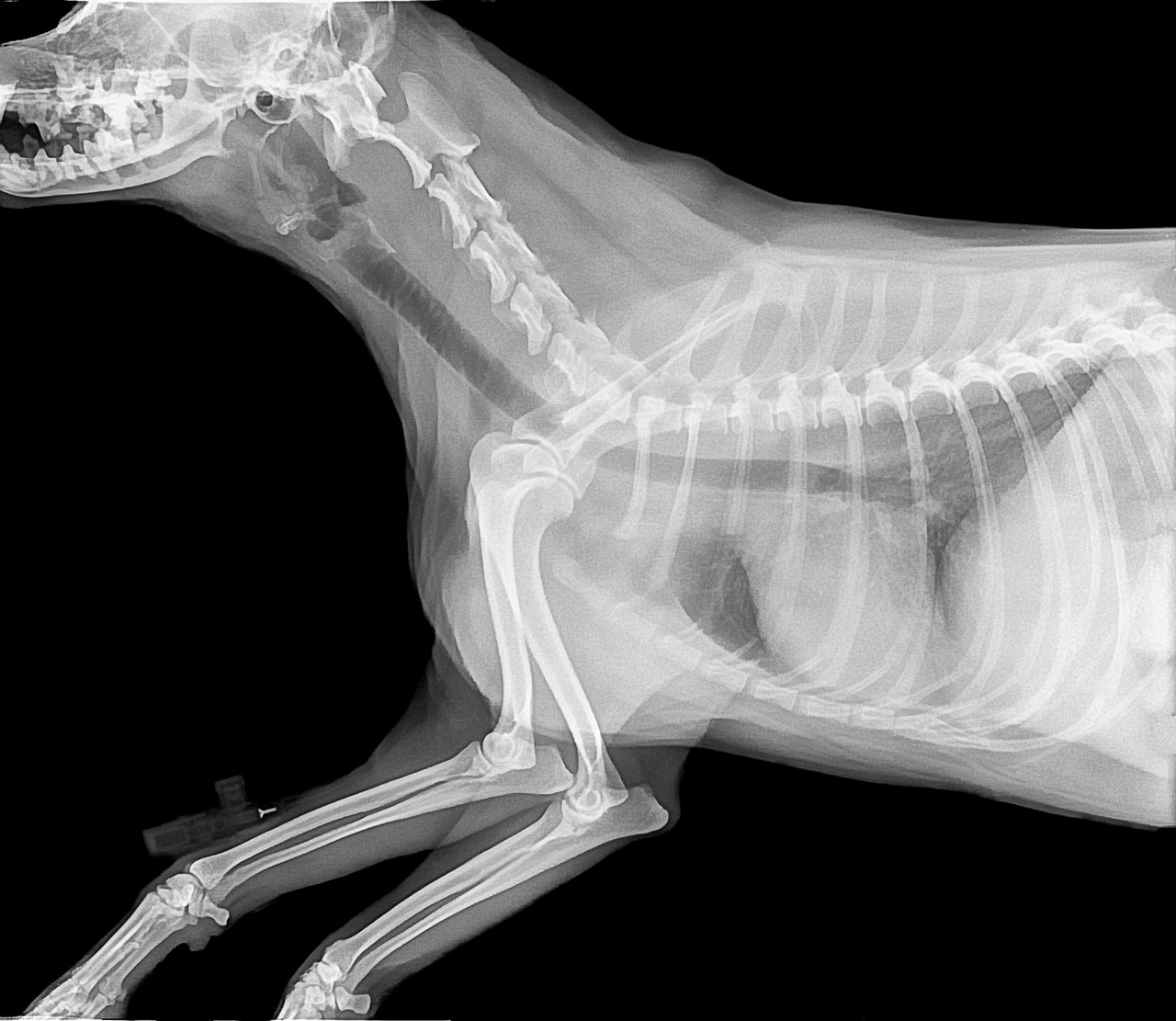
Impact of Technology on Veterinary Practices
In recent years, the landscape of veterinary medicine has undergone a remarkable transformation, largely due to the rapid advancements in technology. Just as a caterpillar morphs into a butterfly, veterinary practices have evolved, embracing tools that enhance both diagnosis and treatment. These innovations not only improve the quality of care but also raise intriguing philosophical questions about the essence of veterinary practice and the human-animal bond. Are we becoming overly reliant on technology, or is it merely a tool that enhances our capabilities?
One significant area where technology has made a profound impact is in diagnostics. With the advent of sophisticated imaging techniques such as MRI and ultrasound, veterinarians can now gain insights into an animal's health that were once unimaginable. These technologies allow for non-invasive examinations, which can drastically reduce stress for the animal. However, this brings up an important question: does the reliance on these technologies dilute the veterinarian's clinical skills? While technology can provide clarity, it’s essential to remember that it should complement, not replace, the intuition and experience that come with years of practice.
Moreover, the integration of artificial intelligence (AI) in diagnostics is another frontier that is reshaping the veterinary field. AI systems can analyze vast amounts of data, identifying patterns that may elude even the most experienced veterinarians. This capability can lead to quicker, more accurate diagnoses, ultimately improving patient outcomes. However, it also raises ethical considerations regarding accountability. If an AI system makes a diagnostic error, who is responsible? The veterinarian, the technology provider, or the AI itself? These are complex questions that the veterinary community must navigate as they embrace these powerful tools.
Telemedicine has also emerged as a game-changer in veterinary care, especially in the wake of global events that have limited face-to-face interactions. With telemedicine, pet owners can consult veterinarians from the comfort of their homes, making veterinary advice more accessible than ever before. This shift has the potential to enhance the human-animal bond, as pets can receive care without the stress of a clinic visit. However, it also poses challenges. How do we ensure that the quality of care remains high? Can a proper diagnosis be made without a physical examination? These questions highlight the need for a balance between technology and traditional veterinary practices.
As we delve deeper into the impact of technology on veterinary practices, it’s clear that while these advancements offer numerous benefits, they also require careful consideration of ethical implications. The veterinary community must engage in ongoing discussions about how to best integrate these tools while maintaining the core values of veterinary medicine. It’s a delicate dance, one that requires a thoughtful approach to ensure that the welfare of animals remains at the forefront.
- How has technology improved veterinary diagnostics? Technology has introduced advanced imaging techniques and AI tools that enhance diagnostic accuracy and speed.
- What are the ethical concerns associated with AI in veterinary medicine? Ethical concerns include accountability for diagnostic errors and the potential for over-reliance on technology.
- How does telemedicine benefit pet owners? Telemedicine provides convenient access to veterinary care, reducing stress for pets and owners alike.
- Will technology replace traditional veterinary skills? Technology is intended to complement traditional skills, not replace them, ensuring a holistic approach to animal care.
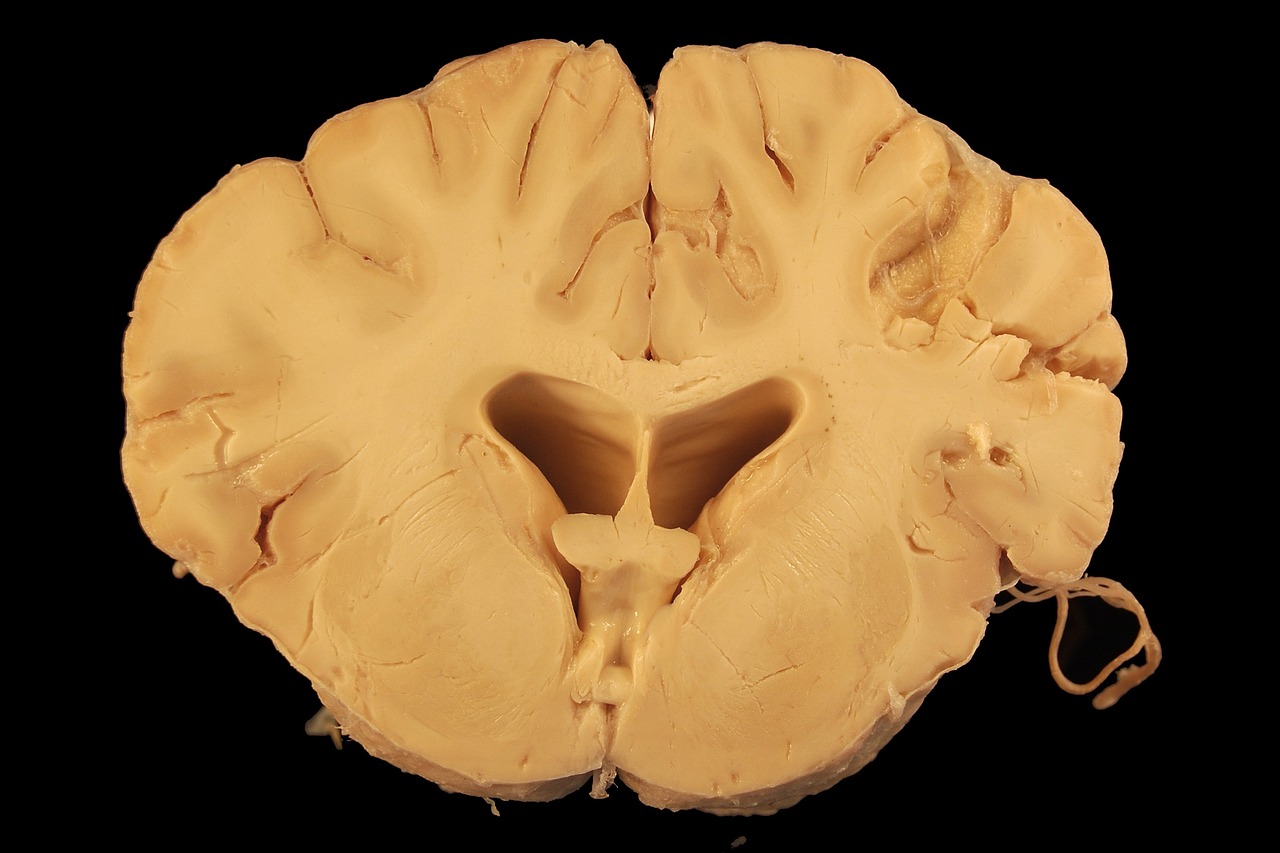
Telemedicine in Veterinary Care
In recent years, telemedicine has emerged as a groundbreaking tool in the field of veterinary care, reshaping how veterinarians interact with their patients and their owners. Imagine being able to consult a veterinarian from the comfort of your home, avoiding the stressful car ride for your furry friend. This convenience is not just a luxury; it’s becoming a vital aspect of modern veterinary practice. Telemedicine allows for real-time consultations, which can be a game-changer for both emergency situations and routine check-ups.
However, the integration of telemedicine into veterinary care raises several important questions. How effective is it compared to traditional in-person visits? Are there ethical considerations that veterinarians must take into account? To address these concerns, let’s explore some of the advantages and challenges associated with telemedicine in veterinary practice.
| Advantages | Challenges |
|---|---|
| Increased accessibility for pet owners, especially in rural areas | Limitations in physical examinations and diagnostics |
| Convenience and time-saving for both vets and clients | Potential for misdiagnosis without in-person assessment |
| Ability to monitor chronic conditions remotely | Dependence on technology and internet connectivity |
One of the most significant benefits of telemedicine is its ability to increase accessibility. For pet owners living in remote areas or those with mobility issues, being able to consult with a veterinarian via video call can be invaluable. This not only saves time but also helps ensure that animals receive timely care. Moreover, telemedicine can facilitate ongoing management of chronic conditions, allowing veterinarians to monitor patients’ progress without the need for frequent in-person visits.
However, the challenges cannot be overlooked. One major concern is the limitations in physical examinations. While visual assessments can provide some insights, they cannot replace the thorough evaluations that happen during a hands-on visit. This can lead to situations where a veterinarian may not fully grasp the extent of an animal's condition, potentially resulting in misdiagnosis. Additionally, the effectiveness of telemedicine relies heavily on reliable technology and internet access, which may not be available to everyone.
Ethical considerations also come into play. Veterinarians must navigate the delicate balance of providing care while ensuring that they do not overstep their boundaries. For instance, when is it appropriate to recommend a telemedicine consultation versus an in-person visit? These questions require thoughtful consideration and a solid understanding of both veterinary ethics and the limitations of telemedicine.
As we move forward, the role of telemedicine in veterinary care will likely continue to evolve. It’s essential for both veterinarians and pet owners to stay informed about the potential benefits and challenges. By embracing this technology while being mindful of its limitations, we can create a more effective and compassionate veterinary care system that prioritizes the health and well-being of our beloved animals.
- What types of services can be offered through telemedicine? Telemedicine can offer consultations, follow-ups for chronic conditions, and even behavioral assessments.
- Is telemedicine suitable for all animals? While it can be beneficial for many pets, certain conditions may require an in-person examination.
- How can I ensure a successful telemedicine appointment? Make sure to have a stable internet connection, prepare any relevant medical history, and have your pet within view of the camera.

Artificial Intelligence and Diagnostics
Artificial Intelligence (AI) is not just a buzzword anymore; it's a game-changer in the field of veterinary medicine. Imagine a world where diagnosing your pet's illness is as quick as a snap of your fingers! AI technologies are paving the way for faster and more accurate diagnostics, which can significantly enhance the quality of care that veterinarians provide. But what does this mean for the future of veterinary practices? Are we ready to embrace these advancements, or do they pose challenges that we need to consider?
One of the most exciting applications of AI in veterinary diagnostics is its ability to analyze vast amounts of data at lightning speed. Traditional diagnostic methods often rely on the expertise of veterinarians, which, while invaluable, can be limited by human error or oversight. With AI, algorithms can sift through thousands of case studies, medical records, and research papers to identify patterns that may not be immediately apparent to even the most experienced vet. This capability not only speeds up the diagnostic process but also enhances accuracy, leading to better treatment outcomes for our furry friends.
However, as we embrace these technological advancements, we must also ponder some philosophical questions. For instance, how much should we rely on AI in decision-making processes? While AI can provide valuable insights, it lacks the empathy and understanding that a human veterinarian brings to the table. The relationship between a pet and its owner is often filled with emotional nuances that algorithms simply cannot grasp. This raises an important question: can we truly replace the human touch with technology?
Moreover, the integration of AI in diagnostics can lead to ethical dilemmas. For example, if an AI system suggests a treatment plan that deviates from traditional methods, how should veterinarians respond? Should they trust the data-driven recommendations or rely on their clinical experience? This tension between technology and traditional practice is a topic of ongoing debate in the veterinary community.
To further illustrate the impact of AI on diagnostics, consider the following table that outlines some of the key benefits and challenges:
| Benefits | Challenges |
|---|---|
|
|
As we navigate this new frontier, it's crucial for veterinary professionals to strike a balance between leveraging AI's capabilities and maintaining the compassionate care that defines the veterinary profession. The future of veterinary diagnostics is undoubtedly bright, but it requires thoughtful consideration of how we integrate these technologies into our practices.
- What is the role of AI in veterinary diagnostics? AI assists in analyzing data, identifying patterns, and providing faster and more accurate diagnoses.
- Can AI replace veterinarians? No, AI cannot replace veterinarians; it serves as a tool to enhance their capabilities, but human judgment and empathy are irreplaceable.
- What are the ethical concerns surrounding AI in veterinary medicine? Ethical concerns include over-reliance on technology, potential loss of the human touch, and issues related to data privacy.
- How can veterinarians effectively integrate AI into their practices? By using AI as a supplementary tool while maintaining their clinical experience and emotional intelligence in patient care.
Frequently Asked Questions
- What is the role of the scientific method in veterinary medicine?
The scientific method is crucial in veterinary medicine as it provides a structured approach to research and clinical practices. It helps veterinarians make evidence-based decisions when diagnosing and treating animal health issues, ensuring that the care provided is grounded in reliable and tested information.
- How do ethical considerations impact veterinary practices?
Ethics play a significant role in veterinary medicine, influencing decisions about treatment options, animal welfare, and the responsibilities veterinarians have towards their patients and society. These considerations help guide veterinarians in making choices that prioritize the well-being of animals while also addressing human interests.
- What are the key philosophical discussions surrounding animal welfare and rights?
The philosophy of animal welfare and rights raises important questions about humane treatment and the moral obligations of veterinarians. It encourages discussions about the implications of animal research and how veterinarians can advocate for better living conditions and treatment for animals in various settings.
- How do veterinarians balance animal and human needs?
Veterinarians often face the challenging task of balancing the needs of animals with those of humans. This requires philosophical reflection on prioritizing care and navigating ethical dilemmas, ensuring that both animal welfare and human interests are respected in practice.
- Why are regulations and standards important in veterinary medicine?
Regulations and standards are essential in veterinary medicine as they ensure ethical treatment and the welfare of animals. Understanding the philosophical basis for these guidelines helps clarify their significance in promoting responsible practices among veterinarians and safeguarding animal health.
- What interdisciplinary approaches are beneficial in veterinary research?
Integrating various disciplines, such as biology, ethics, and sociology, enriches veterinary research. This interdisciplinary approach fosters a broader understanding of animal health and the societal implications of veterinary practices, leading to more comprehensive solutions for animal care.
- How has technology impacted veterinary practices?
Advancements in technology have revolutionized veterinary medicine, introducing new tools and methods for diagnosis and treatment. However, these changes also raise philosophical questions about their impact on the human-animal bond and the essence of veterinary care, prompting discussions about the future of the profession.
- What are the implications of telemedicine in veterinary care?
Telemedicine offers innovative avenues for veterinary care, allowing veterinarians to reach clients remotely. This raises important discussions about the effectiveness of virtual consultations, ethical considerations, and how these changes might affect the veterinarian-client relationship.
- How is artificial intelligence changing diagnostics in veterinary medicine?
The incorporation of artificial intelligence in diagnostics presents both opportunities and challenges. It leads to philosophical inquiries regarding technology's role in decision-making processes and raises questions about the future of veterinary practice in an increasingly automated world.












